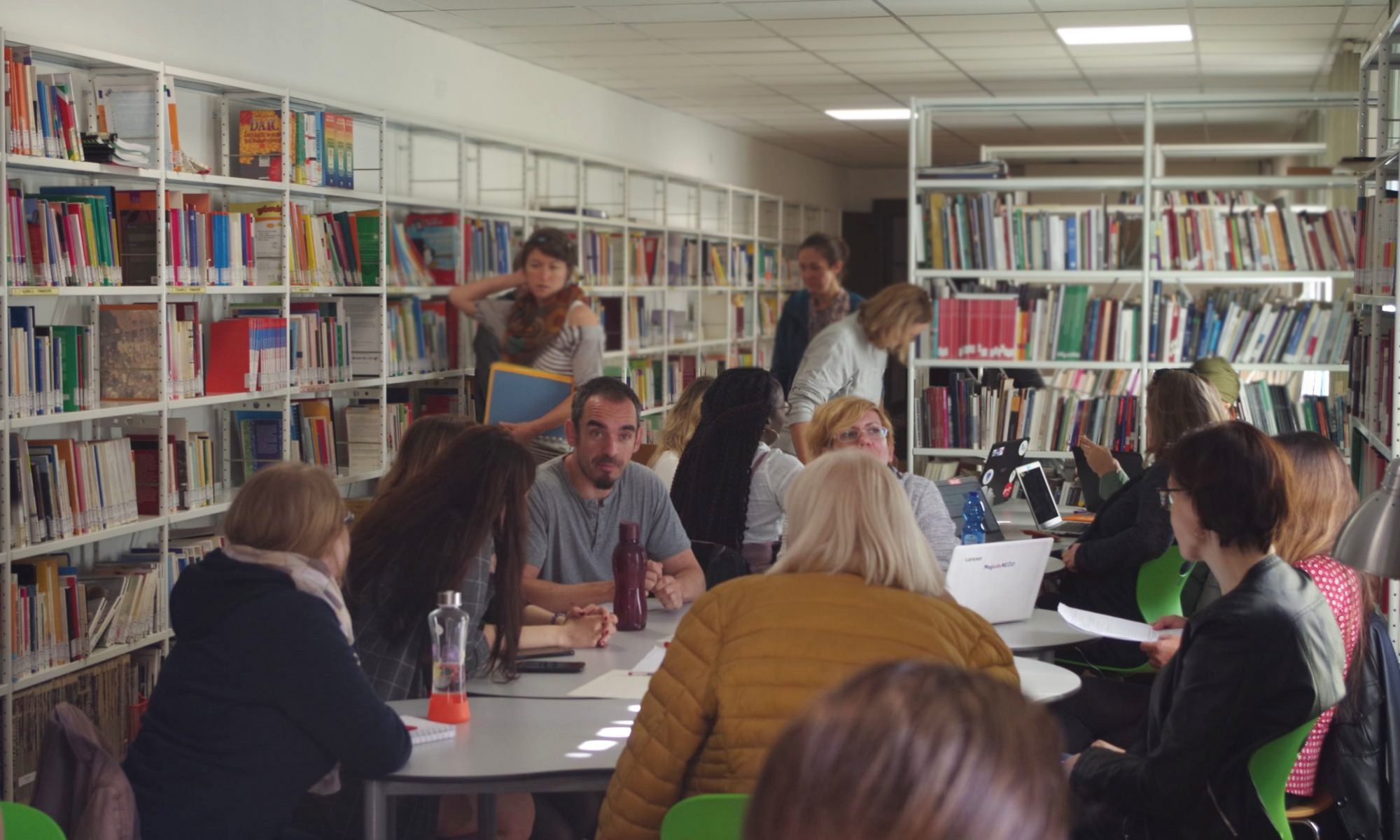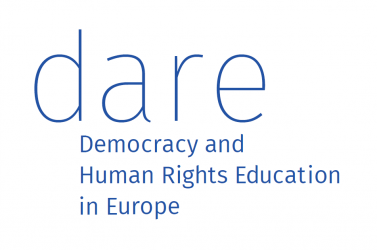STEPS – Survival Toolkit for EDC in Postfactual Societies – first project workshop
 The first meeting of the STEPS project took place from 08.-11.June 2017 at the youth educational centre wannseeForum, Berlin.
The first meeting of the STEPS project took place from 08.-11.June 2017 at the youth educational centre wannseeForum, Berlin.
26 youth workers who are actively working on EDC/HRE with young people in 16 countries met in order to develop a common frame and understanding of what we name as populist challenge to EDC/HRE.
All over Europe we face the rise of so- called populist/national movements who promote a view on the world which can be characterized as white- supremacy, racist- ideology driven and is heavily contesting any views on society which build on a positive vision of inclusive, diverse, peaceful and HR embracing societies in Europe.
In some countries these ideas are already governmental reality: the comrades Orban, Kaczyński and their adepts actively undermining any ideas and work that develop pluralist based view on society with a EU that is rather helpless in counteracting, in a lot of countries with parties and movements already in power positions on the regional and local levels.
What are the societal manifestations of these developments, what are the reasons behind, how does social media influence these developments, are the challenges we face in 16 countries in Europe comparable at all, do they have any things in common or are there points of differences? Are the keywords of populism, post-factualism, radicalisation the right indicators to look for to develop means or are they just symbolising developments that have caused a lack of trust in our societies and forms of decision making in different fields? Are we capably as educators and do we have the expertise and capacity to work out adequate educational concepts if eg. the EUC defines in its recommendation youth work as sector to counteract these phenomena or is this just a vademecum?
What means do we identify to work from a perspective on non-formal EDC/HRE with young people on these challenges?A lot of questions to lead interesting debates, but also a lot of challenges not to get confused and to define concrete STEPS that lead us through this ambitious project.
What expertise do we already have in our organisations and what do we lack in order to better tackle the issue?
| STEPS itself tries to identify with the participants non-formal educational methods to work successfully on EDC/HRE, thus contributes to raise the quality of education within the membership |
From 2017 on 16 DARE organisations work together for two years on the question how EDC/HRE with young people could respond on the big societal challenges rights-populist temptations, post-truth and radicalisation. All over Europe we are confronted with these phenomena on diverse levels and in different intensity.
We discuss these issues from a perspective of policies affected, from the perspective of of working fields in youth work affected taking into account e.g. the tendency of shrinking spaces for civil society, but as well on the level of concrete pedagogical work and approaches developed.
Such STEPS is made of up fours Workshops that build on each other-
- WS I is developing a common frame and understanding of challenges arising for the field of NFE on EDC/HRE with young people
- WS II is an expert meeting where 16 case studies from the national contexts will be discussed. These case studies take stock on the concrete nature of the challenges and on concrete approaches developed in the specific societal contexts for EDC/HRE in 16 participating countries.
- WS III is a trainers meeting where educational practice identified in each country as promising will be introduced in training sessions and undergo a peer review process by educational experts.
- WS IV introduces a concrete toolkit supporting facilitators and educational institutions from non-formal education with inspiration and tools for dealing with the challenges of post-factualism, populism, radicalisation.
STEPS is a mobility project for staff active in youth work. STEPS supported by the Erasmus+ Programme of the European Union, Agreement Number – 2017-1-DE04-KA105-015114.

